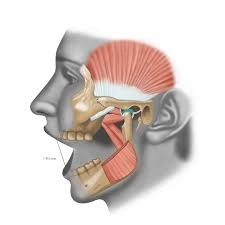
TMJ Disorder Treatment: Effective Ways to Relieve Pain and Improve Jaw Function
Published on: 2025-06-23 | Written by: Dr. Islam Qasim, Consultant Oral and Maxillofacial Surgeon
Temporomandibular joint (TMJ) disorders are common conditions that can significantly affect a person’s quality of life by causing chronic jaw pain and difficulty in opening the mouth or chewing. Dr. Islam Qassem, Consultant in Oral and Maxillofacial Surgery, explains the main causes of TMJ disorders and the most effective modern treatment options available for patients.
What Is the TMJ?
The TMJ is the joint that connects the lower jaw to the skull, enabling mouth movement for speaking, chewing, and swallowing. When this joint or its surrounding muscles become dysfunctional, symptoms such as pain, stiffness, or clicking may occur.
Common Causes of TMJ Disorders
According to Dr. Islam Qassem, TMJ disorders may be caused by:
-
Stress and teeth grinding (bruxism)
-
Improper bite alignment
-
Facial trauma or injuries
-
Inflammatory conditions like rheumatoid arthritis
-
Congenital or structural jaw deformities
Symptoms of TMJ Disorders
-
Jaw or facial pain
-
Clicking or popping sounds when opening or closing the mouth
-
Stiffness or limited jaw movement
-
Chronic headaches or neck pain
-
Pain during chewing or speaking
Diagnosis Methods
Dr. Islam Qassem performs comprehensive evaluations including:
-
Clinical examination
-
Panoramic X-rays or MRI imaging
-
Bite analysis and jaw movement tracking
Modern Treatment Approaches
Dr. Islam Qassem emphasizes that treatment plans vary depending on the severity of the condition and may include:
1. Non-Surgical Treatments:
-
Lifestyle changes and rest: Avoid chewing gum or excessive jaw movement
-
Physical therapy: Stretching and strengthening jaw muscles
-
Medications: Anti-inflammatory drugs or muscle relaxants
-
Dental splints or mouthguards: Reduce pressure on the joint
-
Cognitive behavioral therapy: To manage stress-related teeth grinding
2. Surgical Interventions:
For chronic or complex cases, surgical procedures may be necessary, such as:
-
TMJ arthrocentesis (joint flushing)
-
Arthroscopic surgery
-
Corrective jaw surgery for structural abnormalities
Dr. Islam Qassem’s Tips for Prevention
-
Avoid chewing hard items like ice
-
Use a night guard if you grind your teeth during sleep
-
Manage stress effectively
-
Seek medical advice early when symptoms appear
Conclusion
TMJ disorders should not be ignored, as they can lead to long-term complications. Dr. Islam Qassem, Consultant in Oral and Maxillofacial Surgery, affirms that proper diagnosis and tailored treatment are key to full recovery and restoring normal, pain-free jaw function.

